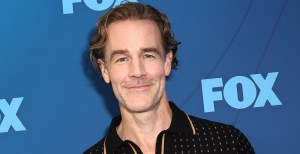Françoise Hardy, the legendary French singer-songwriter, actress, and model, has died at the age of 80. Her passing was announced by her son, Thomas Dutronc, who shared a message on Facebook: “Maman est partie,” which translates to “mom is gone,” accompanied by a photograph of her cradling him as an infant.
Hardy’s career spanned over six decades, during which she released more than 30 studio albums and graced the silver screen in over a dozen films. Her allure captivated artists such as Mick Jagger, David Bowie and Bob Dylan, who penned a heartfelt poem for her that adorned the sleeve notes of his 1964 album, Another Side of Bob Dylan.
Videos by PopCulture.com
While the cause of her death was not disclosed, Hardy had been battling lymphatic cancer since 2004, compounded by a diagnosis of laryngeal cancer. In an interview with the French magazine Femme Actuelle in June 2021 (per NPR), she revealed the extent of her health struggles, sharing that a tumor in her ear had rendered daily tasks excruciatingly challenging, requiring over five hours to prepare food she could swallow. During that same interview, Hardy advocated for the legalization of assisted suicide in France, a cause she championed.
The French Prime Minister, Gabriel Attal, paid tribute to the iconic figure, writing on social media: “French icon, singular voice with a fierce tranquility, Françoise Hardy rocked generations of French people, for whom she will remain anchored in life’s moments. For me, she is my entire childhood. “Message personnel” [Personal Message], listened to on repeat by my mother in the car. Or “Puisque vouz partez en voyage” [When You Leave on a Trip], which I sang with my sisters: they were Hardy and I [singer Jacques] Dutronc.”
Hardy’s journey to stardom began in her teenage years. She burst onto the scene at 18 with the release of her self-penned song “Tous les garçons et les filles” [All the Boys and Girls] in 1962. Her melancholic lyrics and blue eyes instantly elevated her to the forefront of France’s “yé-yé” generation, a moniker derived from the “yeah, yeah” choruses of anglophone acts like The Beatles.
Beyond her musical success, Hardy’s fashion-forward aesthetic and demure nature made her a style icon, gracing magazine covers and collaborating with renowned photographers such as William Klein and Richard Avedon for Vogue and other publications. Her allure was so great that Dylan refused to take the stage during his first concert in Paris in 1966 until he was assured of her presence in the audience.
Hardy’s cinematic endeavors included appearances in films like Château en Suède (1963), What’s New Pussycat? (1965), and Grand Prix (1966), further solidifying her status as a multifaceted artist. Despite that, she disliked making films (“I cried every night,” she told a Le Monde interviewer, per The New York Times) and soon stopped making them. The 1970s and ’80s brought jazz and bossa nova albums from the singer. As public interest in her had waned by then, she announced in 1988 that she would no longer sing, although she continued to write songs for others.
In the late 1990s and 2000s, she returned to singing with a more rock-oriented style, recording an album with her son Thomas from her marriage to Jacques Dutronc. Later in life, she pursued her passion for writing, authoring books on astrology, fiction, and her autobiography, “Le désespoir des singes…et autres bagatelles” [The Despair of Monkeys and Other Trifles].
In a 2018 interview with NPR’s All Things Considered, Hardy expressed her enduring enthusiasm for creating new music, stating, “I cannot resist to the temptation of a beautiful melody. It’s one of the things which make me really very happy. And if a musician offers me a beautiful melody, I cannot resist.” Her only immediate survivor is her son.








